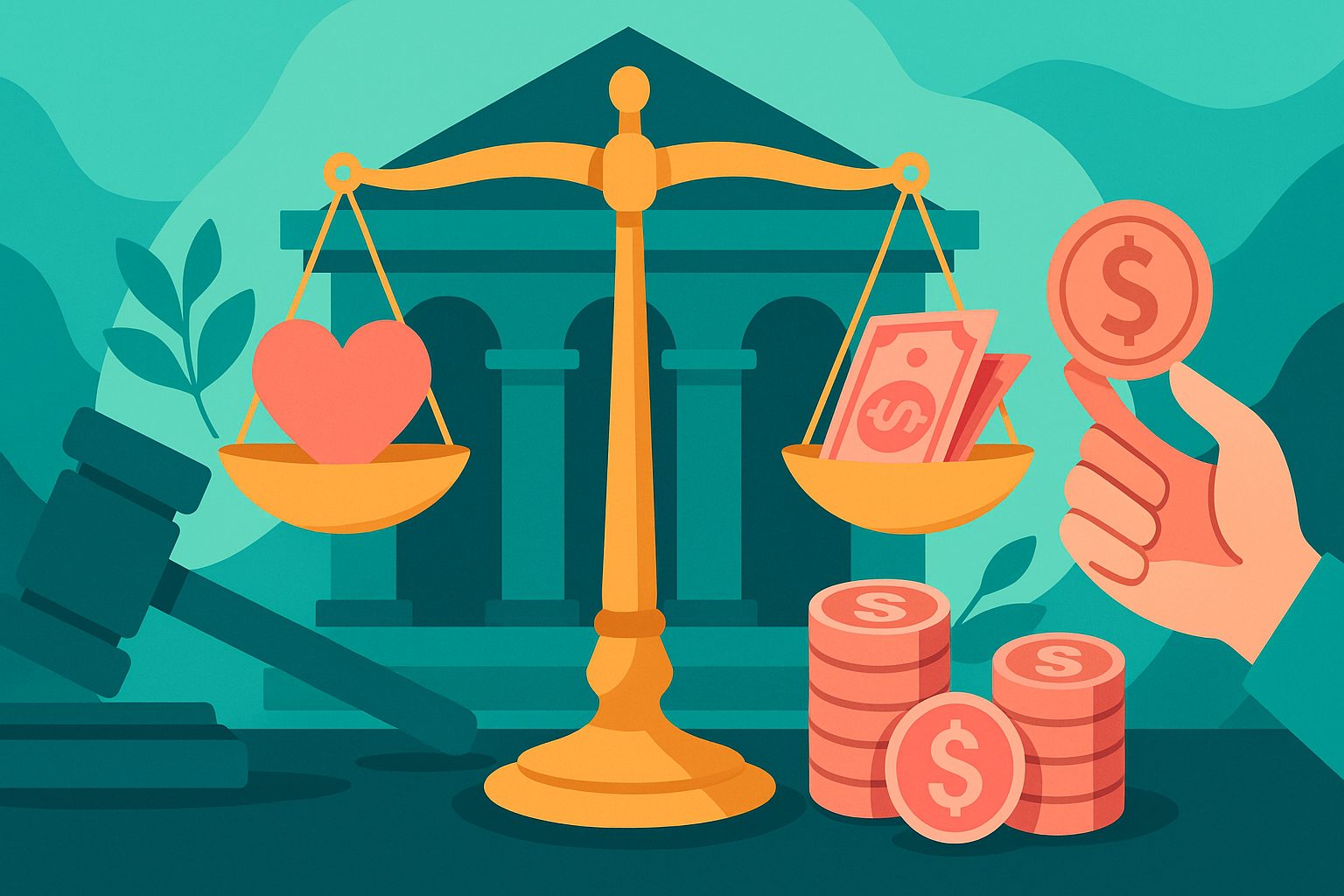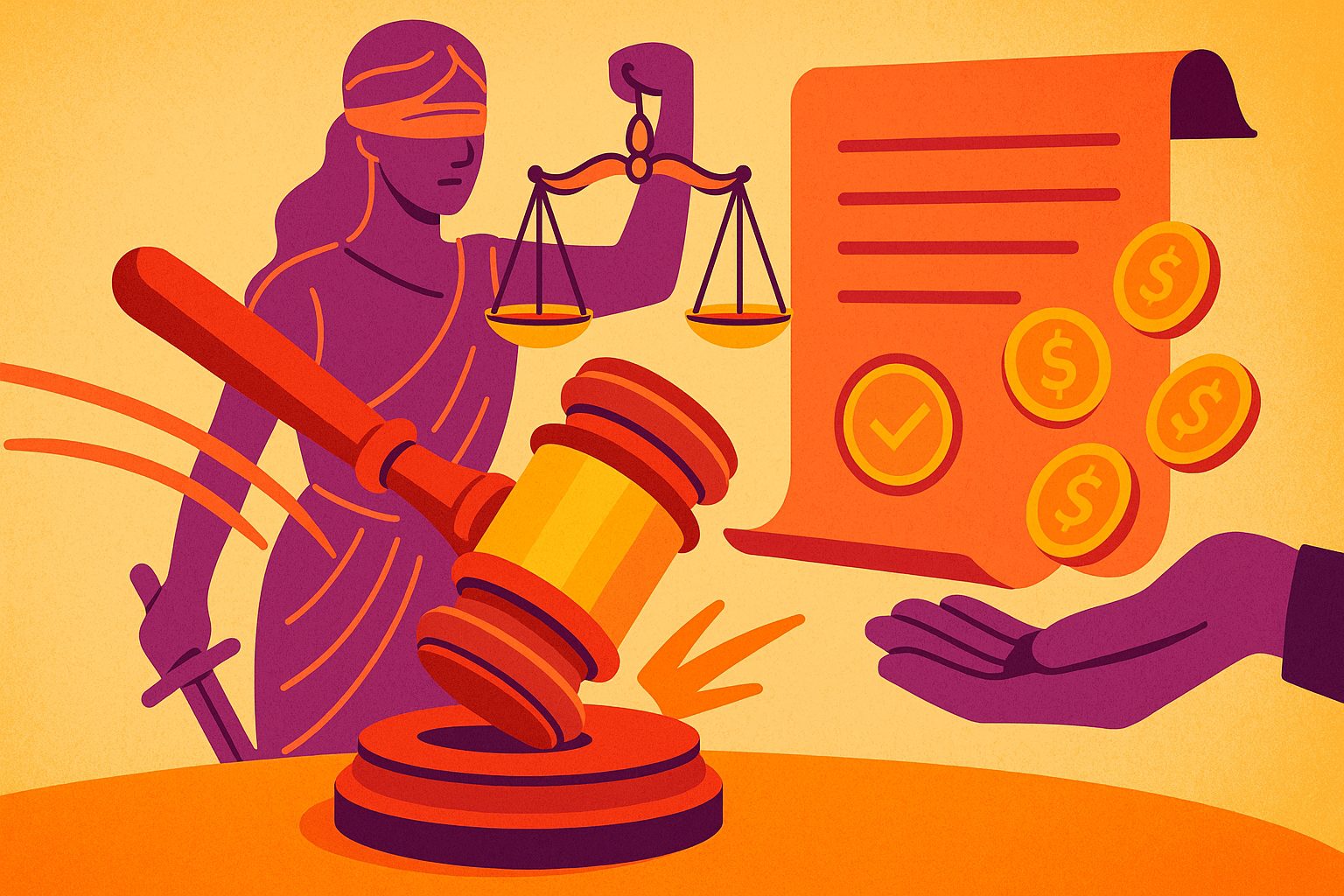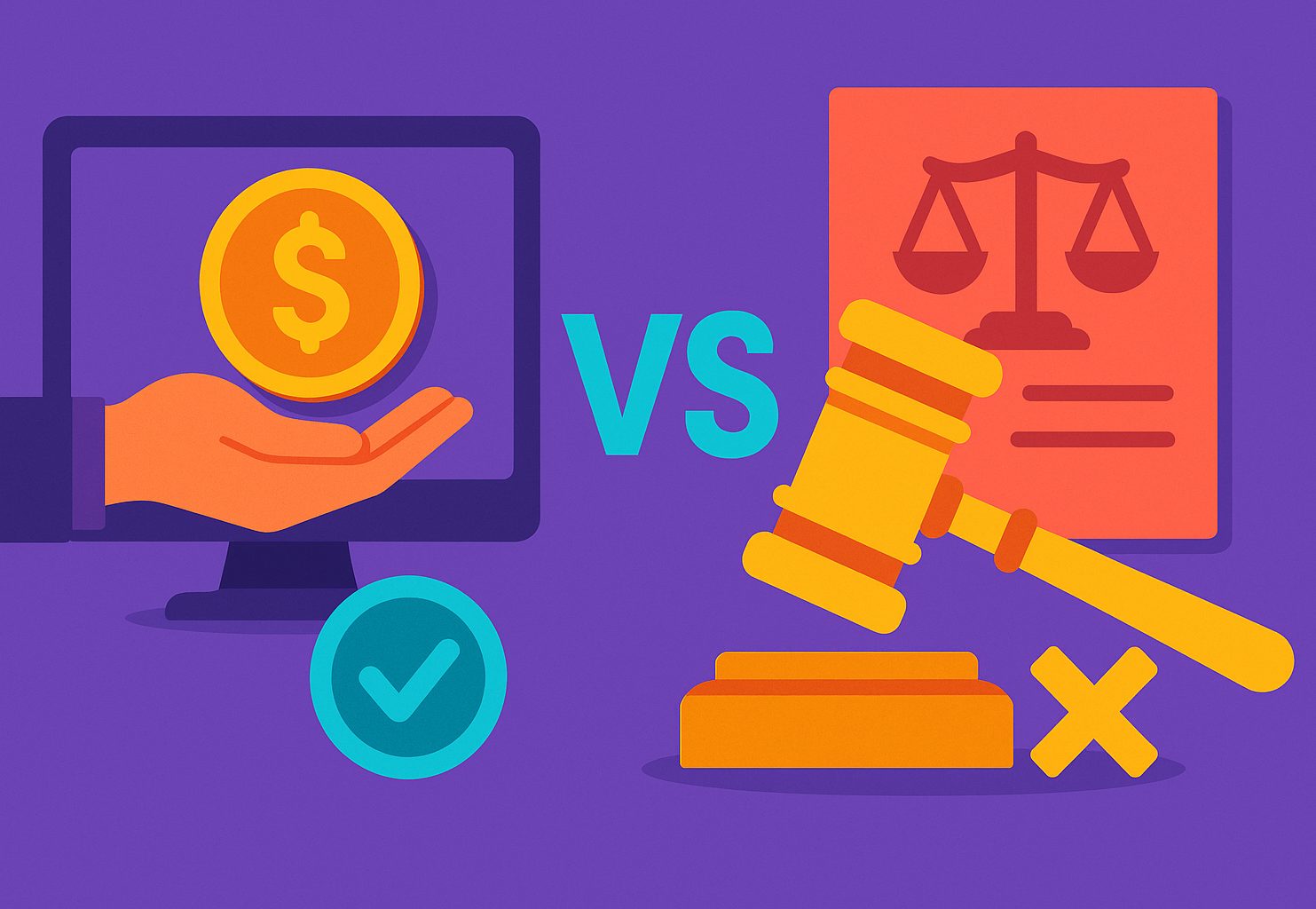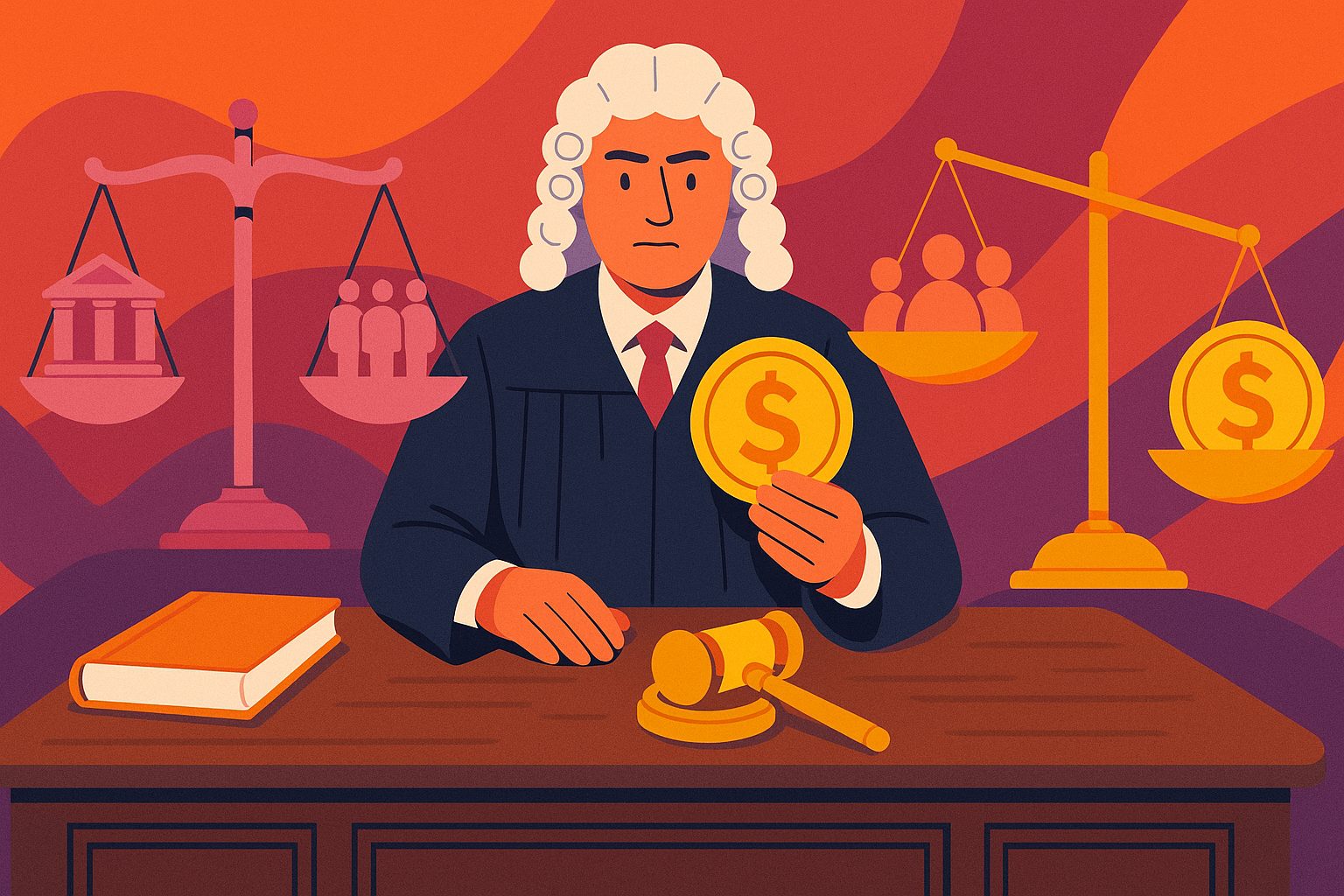Unveiling the Ethics Behind the Legal Crowdfunding Boom
Litigation crowdfunding has emerged as one of the most disruptive forces in modern legal finance. It bridges the gap between justice and affordability, allowing individuals and organizations to raise money from the public to pursue legal claims that might otherwise go unheard. From class action lawsuits to civil rights battles and commercial disputes, crowdfunding is reshaping who can access the courtroom—and how. Yet alongside its promise lies a minefield of ethical dilemmas. Questions around influence, transparency, privacy, and accountability now stand at the forefront of this rapidly expanding movement. As more platforms, funders, and litigants enter the arena, understanding the ethical dimensions of litigation crowdfunding is no longer optional—it’s imperative.
Who’s Calling the Shots? The Power Dynamics at Play
One of the most pressing ethical questions in litigation crowdfunding revolves around decision-making authority. When third-party funders contribute to a legal case, particularly in return for a share of the proceeds, who ultimately has control over the litigation strategy? Traditionally, this power rests squarely with the attorney and the client, guided by fiduciary duty and legal ethics. But the introduction of outside money can blur those lines. Funders may want to influence the direction of a case, advocate for early settlement, or withdraw support if the outlook changes. Ethical best practices demand that any funding arrangement preserves the attorney’s independence and upholds the client’s autonomy. Without this safeguard, justice risks becoming a commodity driven by return on investment rather than legal merit.
Transparency vs. Confidentiality: Walking a Fine Line
Crowdfunding thrives on storytelling. To raise funds, campaigns must communicate the legal issue, the parties involved, and the broader stakes. But in the context of litigation, these disclosures can tread dangerously close to breaching attorney-client privilege or prejudicing legal proceedings. Lawyers have a duty to protect confidential client information, while courts often impose restrictions on public statements. Campaign organizers must balance the need for transparency with the obligation to protect sensitive legal details. Overdisclosure can compromise a case. Undisclosure can undermine donor trust. Navigating this tightrope requires careful coordination between legal counsel, platform administrators, and clients themselves—ensuring that fundraising campaigns are compelling, honest, and ethically sound.
The Ethics of Profit in Pursuit of Justice
At its core, litigation crowdfunding exists on a spectrum—from altruistic campaigns supporting human rights cases to profit-seeking ventures funding commercial lawsuits. When contributors donate purely out of solidarity, ethical concerns are relatively straightforward. But when funders invest with the expectation of financial return, a new layer of complexity emerges. Is it ethical to profit from someone else’s legal struggle? Does the promise of return undermine the pursuit of justice? These questions are especially thorny in personal injury or discrimination cases, where the plaintiff’s suffering becomes part of a financial product. Responsible platforms must ensure that funders understand the risks, that terms are clearly disclosed, and that the dignity of claimants is never sacrificed in the name of potential payout.
Avoiding the Weaponization of Crowdfunded Litigation
As crowdfunding gains traction, so does the risk of abuse. Litigation can be used as a tool not just for justice, but for intimidation, revenge, or reputation damage. The open nature of crowdfunding platforms may attract actors who seek to exploit the legal system for personal or political gain, financed by sympathetic or manipulated supporters. Ethical litigation crowdfunding must incorporate safeguards to prevent frivolous, malicious, or vexatious lawsuits from receiving funding. This may include third-party legal review, platform-level screening, or transparency requirements about case legitimacy. The goal should always be to support meritorious claims, not to amplify hostility or misuse the courts as a battleground funded by viral emotion.
Attorney Obligations in a Crowdfunded Context
Lawyers navigating crowdfunded cases face unique ethical responsibilities. They must ensure that any involvement with funders does not compromise their duty of loyalty, confidentiality, or candor. This includes vetting funding agreements to prevent funder interference, maintaining independent professional judgment, and securing informed consent from clients before engaging with third-party finance. In jurisdictions where legal ethics rules specifically address litigation funding, attorneys must stay abreast of evolving standards and regulations. Even in regions without formal guidance, lawyers must proactively manage these relationships with transparency and care. Ultimately, the attorney’s primary obligation remains to the client, not the contributors or platforms supporting the case.
Informed Consent and the Role of the Client
Ethical crowdfunding requires more than just lawyer awareness—it demands that clients understand exactly what they are entering into. For clients, especially those unfamiliar with litigation or finance, the terms of crowdfunding arrangements can be opaque. Are they expected to give up a portion of any award? Do funders have a say in settlement decisions? Are there limits on how funds are used? Ensuring that clients give fully informed consent means explaining all implications in plain language and outlining potential risks. Clients must be equipped not only to make decisions but to maintain ownership of their legal journey—even when others are helping to finance it.
Equity, Access, and the Risk of Perpetuating Privilege
Litigation crowdfunding promises to level the playing field, but it can also reinforce existing inequalities if not managed equitably. Cases that resonate with public emotion or media narratives may find it easier to attract funding, while equally deserving but less headline-friendly claims may struggle. This popularity-driven dynamic risks creating a system where public sympathy, marketing savvy, or platform exposure become more important than legal validity. Ethical platforms must work to democratize access, offering support for cases that serve justice even if they lack viral appeal. This includes investing in discoverability tools, ensuring equal visibility, and perhaps even establishing internal funds to support less “marketable” but critical cases.
The Ethics of Platform Curation and Case Selection
Crowdfunding platforms serve as gatekeepers in the litigation finance ecosystem. Their decisions about which cases to accept, feature, or promote shape not only the financial landscape but also public perception of what justice looks like. These choices carry ethical weight. Platforms must guard against biases—be they political, racial, or financial—and ensure that their selection criteria prioritize legal merit, client protection, and social impact. When cases are rejected, applicants deserve transparency. When they are accepted, contributors deserve honest disclosure. The platform’s credibility depends on its ability to maintain neutrality, uphold legal integrity, and act in service of both users and the broader justice system.
Managing Expectations: Communicating Risk to Funders
Funders, whether donors or investors, often have limited understanding of how litigation unfolds. Ethical crowdfunding demands full transparency about the nature of legal risk. Lawsuits can take years. Outcomes are uncertain. Settlements may not cover all expenses. And in the case of investments, returns are never guaranteed. Campaigns must clearly communicate these risks, avoid exaggerated claims, and never present legal battles as guaranteed wins. Platforms should educate funders about the inherent unpredictability of legal proceedings and build systems to keep them informed throughout the case lifecycle. When funders are informed, they become partners in justice—not disappointed speculators.
Global Variations and Cross-Border Challenges
Ethical considerations in litigation crowdfunding are further complicated by jurisdictional diversity. What’s permissible in one country may be prohibited in another. For example, some nations restrict third-party litigation funding altogether or impose strict disclosure requirements in court. Others encourage it as a tool for access to justice. Platforms operating internationally must navigate this patchwork carefully, ensuring compliance with local laws while upholding consistent ethical standards. This requires collaboration with local legal professionals, clear communication with platform users, and flexibility to adapt to regional differences. A global vision for litigation crowdfunding must also include a global ethical framework—one that respects both cultural nuance and universal principles of justice.
Confidentiality Breaches and Data Protection Risks
The digital nature of crowdfunding introduces another ethical frontier: data security. Case files, personal details, and financial information are frequently uploaded and stored on crowdfunding platforms. Without strong security protocols, this data is vulnerable to breaches—potentially exposing sensitive client information or legal strategies to the public. Ethical platforms must implement rigorous data protection measures, comply with regulations such as GDPR or CCPA, and minimize data collection to only what is necessary. Funders, too, must be educated about how their contributions are tracked and protected. In the context of litigation, where confidentiality can make or break a case, data ethics becomes just as important as legal ethics.
Creating Ethical Frameworks for a Growing Movement
As litigation crowdfunding matures, there is a growing need for formal ethical frameworks to guide its evolution. Industry associations, bar councils, and regulatory bodies must collaborate to develop guidelines that address the unique challenges of this funding model. These frameworks should cover everything from disclosure and investor protections to attorney conduct and client consent. Self-regulation by platforms, guided by these principles, can enhance public trust and reduce the risk of regulatory crackdowns. The goal is not to stifle innovation, but to shape it responsibly—ensuring that crowdfunding becomes a force for justice, not exploitation.
Looking Ahead: A Call for Ethical Leadership
Litigation crowdfunding is poised to become a permanent fixture in the legal landscape. Its potential to increase access to justice, empower underserved communities, and reshape the economics of litigation is undeniable. But with that potential comes the responsibility to lead ethically. Lawyers must adapt with caution and integrity. Platforms must balance scale with stewardship. Funders must align their expectations with the realities of legal risk. And clients—most importantly—must be protected, informed, and respected throughout the process. Only then can litigation crowdfunding fulfill its promise as a revolutionary tool for fairness, equality, and justice in a complex legal world.
As this movement grows, so too must our commitment to ethical action—because justice deserves nothing less than our highest standards.




